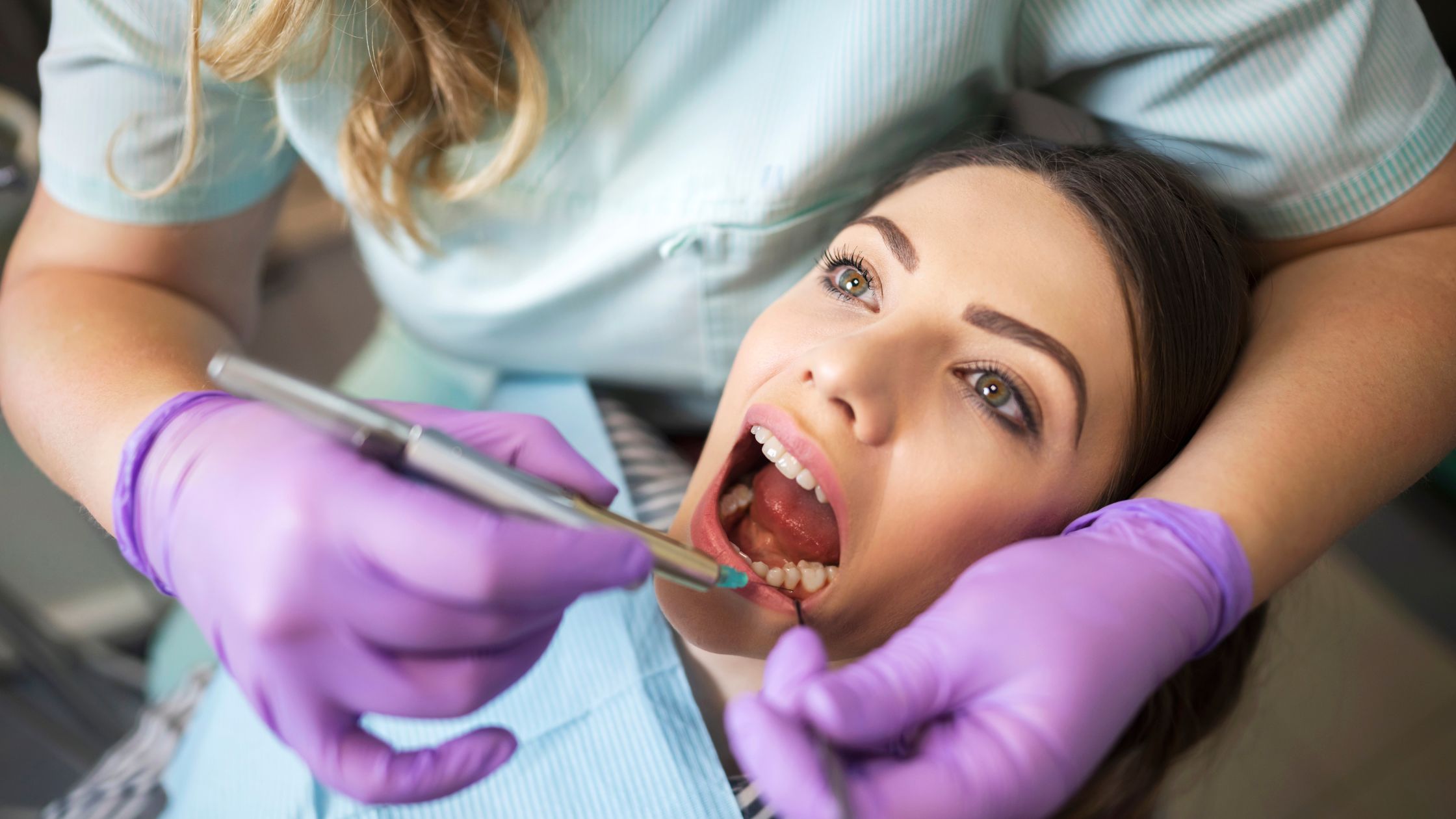Going to the dentist for a teeth cleaning can be a little daunting for some people. If you’ve never been to the dentist before, or if it’s been a while since your last visit, you may not know what to expect. In this blog post, we will discuss what happens during a typical teeth cleaning appointment. We will also provide some tips on how to prepare for your appointment and make the most of your visit!
What to expect when you go to the dentist
When you go to the dentist, expect to be greeted by a friendly and knowledgeable staff. They will take your medical history, ask about any recent changes in medical condition or medications, and review your dental and oral health. The dentist will then perform an examination of your teeth, gums, and mouth.
The exam may include X-rays to get a better look at any areas of concern. The dentist may also use special instruments to check for cavities, gum disease, infections, and other potential problems.
The dentist will offer recommendations for treatments or preventive measures you can take to keep your oral health in good condition, such as brushing and flossing regularly, using mouthwash, and seeing the dentist for regular checkups. The dentist may also refer you to a specialist if further treatment is required.
Your visit should end with an explanation of any treatments or actions necessary to maintain your oral health. You should leave feeling informed and confident in your dental care plan.
How often you should be going to the dentist for a cleaning
You should visit the dentist for a cleaning and checkup every six months, or twice a year. This is important for maintaining healthy teeth and gums and preventing common oral health issues like cavities, gum disease, and tooth decay. Regular dental checkups can also help detect any potential signs of more serious problems. If you have experienced any issues with your teeth or gums, like pain or swelling, your dentist may recommend that you come in more frequently.
The different types of dental cleanings
Dental cleanings are an important part of maintaining good oral health. There are different types, and each type has its own purpose and benefits.
The most basic type of dental cleaning is a prophylaxis, also known as a “prophy” or “teeth cleaning.” This type of cleaning is usually done in a dentist’s office and involves removing plaque, tartar, and other debris from the teeth. This type of cleaning is recommended for most people at least twice a year.
A deep cleaning, also known as scaling and root planing, involves removing buildup that cannot be removed by a prophylaxis and is usually done when a patient has gum disease or cavities. This type of cleaning involves cleaning the surface of the teeth and gums, as well as below the gum line to remove bacteria and debris that cause gum disease.
A fluoride treatment is another type of dental cleaning that helps to strengthen tooth enamel and prevents decay. It is usually done in the form of a gel, foam, or varnish that is applied to the teeth and allowed to sit for a few minutes before being brushed off. This type of cleaning should be done at least once a year.
Finally, dental sealants are another type of dental cleaning. Sealants are thin plastic coatings that are applied to the teeth to prevent decay. They form a barrier that keeps out plaque and food particles, helping to keep teeth healthy and strong. This type of cleaning is usually done once or twice a year depending on the patient’s oral care needs.
What happens during a dental cleaning ?
During a dental cleaning, the dentist or hygienist will first use a scaler to scrape off plaque and tartar from the teeth. They will then use a special type of toothbrush to remove any remaining debris, before finally polishing the teeth with an electric brush and toothpaste. This helps make the surface of the teeth smoother and easier to clean. The dentist may also use a fluoride treatment after the cleaning to help protect the teeth from decay. Finally, they will inspect your mouth for any signs of gum disease or other problems that need to be addressed.
How long does a dental cleaning take ?
The length of time a dental cleaning takes can vary between patients, depending on a few factors. Generally, it takes about 45 minutes to an hour for most cleanings. In some cases, the dentist may need more time if there is a lot of plaque or tartar buildup that needs to be removed from your teeth. The dentist may also need to take x-rays, which can add additional time to the procedure. If other procedures, such as fillings or extractions are being done at the same time, this can add additional time. Your dentist will be able to give you a more accurate estimate of how long your appointment will take when you schedule it.
What are the benefits of getting your teeth cleaned regularly ?
Regular teeth cleanings are important for maintaining good oral health. This helps prevent tooth decay, gum disease, and other oral health problems. Regular teeth cleanings remove plaque, tartar, and bacteria from your teeth that would otherwise build up over time. These substances can cause cavities, bad breath, and even gum disease if left untreated.
Regular teeth cleanings also help to identify any potential problems before they become serious. Your dentist can spot signs of decay, gum disease, and other oral health issues early on and provide the necessary treatment before it progresses. This helps to prevent more costly treatments down the road.
In addition to its physical benefits, regular dental visits can also help you maintain your overall health. Studies have shown a link between gum disease and other chronic diseases, including heart disease and diabetes. Catching any signs of oral health problems early can reduce the risk of these conditions.
Finally, regular teeth cleanings are important for good self-esteem. Keeping your teeth and gums healthy gives you a beautiful smile and can help you feel more confident.
By getting your teeth cleaned regularly, you are taking steps to ensure that your mouth stays healthy and happy for years to come!





